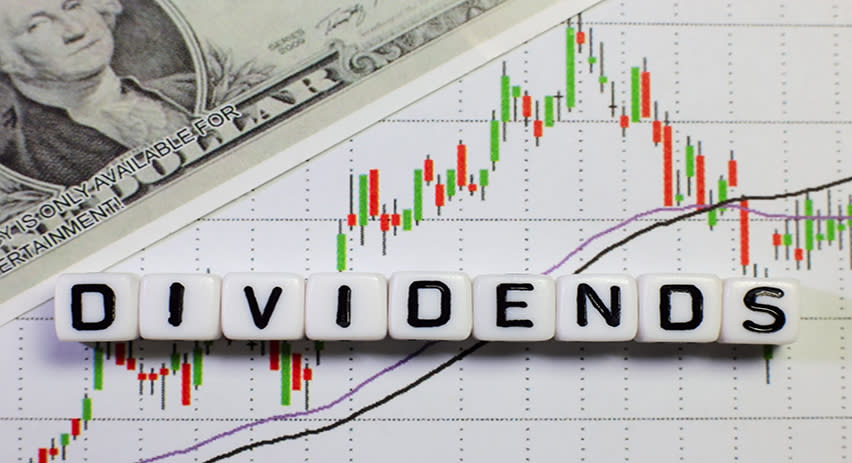Market indicators have been sending conflicting signals lately, creating uncertainty among investors. While year-to-date gains are certainly better than last year’s bear, and volatility, while a concern, has run lower than last year, plenty of risk factors still remain, both in the broader economy and in the stock market.
Taking a wider view of the markets, Christian Mueller-Glissman, head of asset allocation research for Goldman Sachs, gives investors a nudge toward a more defensive posture.
Explaining that the overall lower volatility we’ve seen this year doesn’t necessarily translate into lower risk, Glissman says, “Equity volatility has been unusually low YTD: first because of relatively supportive macro conditions and, more recently, as the S&P 500 was buffered by lower bond yields. However, we think a shift to a low vol regime remains unlikely considering still elevated macro uncertainty, signs of market stress and mixed macro momentum with slowing growth in Q2…”
“We remain relatively defensive in our asset allocation. While our baseline is a relatively friendly macro backdrop, risks are skewed to the downside and risk premia are relatively low. We see more value in equity protection strategies,” Glissman added.
And this will take us to dividend stocks, a perennially popular defensive play when markets turn sour. Goldman Sachs analysts have been pointing out some dividend stocks for just that.
These are div players offering yields of up to 9%, and according to TipRanks, the world’s biggest database of analysts and research, they have ‘Moderate’ or ‘Strong Buy’ consensus rating from the rest of the Street. Let’s take a closer look.
Coterra Energy (CTRA)
We’ll start with Coterra Energy, a hydrocarbon explorer based in Houston, Texas, and operating in the Permian Basin of its home state, the Anadarko Basin of neighboring Oklahoma, and the Marcellus shale formation of Pennsylvania. These are some of North America’s richest oil and gas production regions, and Coterra holds an aggregate position in them totaling approximately 600,000 net acres, giving the company exposure to crude oil, natural gas, and natural gas liquids.
That net-acreage footprint holds more than 2.89 billion barrels of oil equivalent in proven reserves, a veritable treasure trove for Coterra. The company has leveraged those reserves to generate solid revenues, and the company’s 2022 top line marked a substantial 151% year-over-year increase from 2021. The company hasn’t just collected this windfall; it has also passed it along to shareholders through a generous capital return policy.
A look at the last financial release, for the fourth quarter and full year 2022, shows the underpinnings of the Coterra’s revenue performance. The company’s Q4 production came in at a total of 632 thousand barrels of oil equivalent per day, which broke down to 90.7 thousand barrels of oil production daily and 2.78 billion cubic feed of natural gas per day. Both the oil and gas production beat the high end of the previously published guidance – although total production was down 7.8% year-over-year. The company benefited, however, from an 8.8% y/y increase in the realized oil price, and a 9.9% y/y increase in the price of natural gas.
At the bottom line, Coterra’s reported a non-GAAP EPS of $1.16 per share, beating the forecast by 5 cents.
Turning to the dividend, Coterra’s last dividend declaration, in February, set the base payment at 20 cents per common share – and added a 37-cent variable payment. The combined common share dividend of 57 cents was paid out on March 30; the annualized rate of $2.28 per share gives a yield of 9.1%. The dividend payment was directly supported by a quarterly free cash flow of $892 million.
Neil Mehta, one of Goldman’s 5-star analysts, has been covering Coterra, and he’s duly impressed by the firm’s potential going forward.
“We see a favorable setup for the company to generate positive FCF in the near term despite weakness in natural gas prices. This is supported by the company’s higher exposure to crude oil (14%) relative to gassy peers and a strong balance sheet (net debt/EBITDA of 0.3x as of 2023 y-e)… Our positive view on CTRA is further supported by its deep inventory and strong performance in the Delaware, where management sees driving ~5% growth in oil production in 2023-2025,” Mehta opined.
Mehta’s Buy rating on CTRA is complemented by a $27 price target, implying a one-year gain of 7% for the shares. Based on the current dividend yield and the expected price appreciation, the stock has 16% potential total return profile. (To watch Mehta’s track record, click here)
Mehta, while bullish on the stock, is somewhat conservative compared to the general Wall Street view here. The consensus price target is higher than Mehta’s, at $30.62, and implies a stronger upside potential of ~19% from the $25.79 share price. Overall, CTRA has a Moderate Buy consensus rating, reflecting 14 recent analyst reviews with a breakdown of 5 Buys, 8 Holds, and 1 Sell. (See CTRA stock forecast)
Corebridge Financial (CRBG)
The second Goldman pick we’re looking at is the financial services firm Corebridge. This company emerged in the public markets last year, as a spin-off from the giant insurance firm AIG.
Since its spin-off, Corebridge has operated primarily in the insurance industry, offering a range of insurance products to the US market, including annuities, asset management, and life insurance. In addition, Corebridge also offers retirement solutions, allowing individuals to plan for and achieve financially stable futures.
Corebridge is scheduled to release the first results for 2023 on May 9. Looking back at the 4Q22 report, we find that the company had an after tax operating income of $574 million, or 88 cents per share. The EPS figure is notable, as it beat expectations by 27%, or 19 cents per share. In a metric that should interest investors, as it relates directly to the strength of an insurance company, Corebridge also reported a 14% year-over-year increase in its collected premiums and deposits during Q4.
Dividend investors, however, will be glad to note that Corebridge has not been shy about paying out since the IPO. In its short time on the public market, the company has paid out $296 million in dividend payments. The last dividend to go out, on March 31, was for 23 cents per common share; at an annualized rate of 92 cents per common share, this dividend yields 5.77%, or just a shade under the last reported annualized inflation numbers.
This newly public insurance company has caught the eye of Goldman’s Alex Scott, who sees it as an attractive risk-reward play for investors.
“We upgrade CRBG to a Buy rating (from Neutral) driven by our view that while the company is exposed to CRE credit deterioration, the valuation allowance against mortgage loans softens the impact of credit losses, and we see pressure in the stock price related to regional bank difficulties and subsequent read-across on surrender rates, which we do not see as a risk for CRBG’s net flows.”
“Finally,” the analyst summed up, “we note that CRBG’s depressed valuation (down ~20% as of March 31, 2023) is lower than peer variable annuity companies, despite a more benign liability profile. As such, we see favorable upside in the stock driven by pricing pressure that is not reflective of its asset and liability risk.”
Scott sets a $23 price target here, indicating a possible 45% upside potential, to go along with his Buy rating. (To watch Scott’s track record, click here)
Overall, this is a stock with a Strong Buy consensus rating from the analysts, based on 8 reviews that include 6 Buys and 2 Holds. The shares’ $25.50 average price target and $15.80 trading price together imply a gain of 61% on the one-year horizon. (See CRBG stock forecast)
To find good ideas for dividend stocks trading at attractive valuations, visit TipRanks’ Best Stocks to Buy, a tool that unites all of TipRanks’ equity insights.
Disclaimer: The opinions expressed in this article are solely those of the featured analysts. The content is intended to be used for informational purposes only. It is very important to do your own analysis before making any investment.



















:quality(85):upscale()/2025/01/07/813/n/1922564/b63421d9677d72ddd6eff7.56786871_.png)






![Jordan Adetunji – KEHLANI REMIX (feat. Kehlani) [Official Video] Jordan Adetunji – KEHLANI REMIX (feat. Kehlani) [Official Video]](https://i.ytimg.com/vi/EeJ8n5PxFGE/maxresdefault.jpg)

